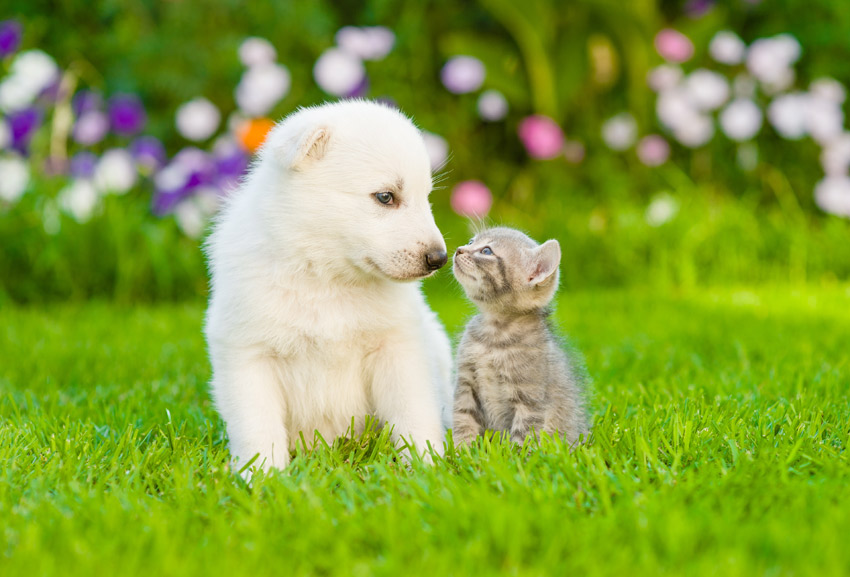The first socialisation of your dog takes place in his first few months of life, that is, he learns to interact and live together with his siblings, people and other animals, as well as the space around him. It’s an important phase because it will determine his behaviour as an adult and, therefore, it’s best to teach him the right attitude from the start.
Lack of attention to this determining phase of a dog’s life and lack of adequate stimulation are the origins of the behavioural problems he will have later on in life. In this period of his life, playing is the best way to learn to relate to others and learn some basic rules. This is why it’s so important to let puppy play with dogs of all kinds of ages, sizes and breeds, and to let him play freely, without a lead. These playtimes should, of course, always be supervised and take place in fenced-in areas like enclosed parks or gardens. He needs to learn to play with other people as well, not just with members his own adoptive family.
During the puppy’s first phase of life the dog needs to be with his siblings and mother, at least for the first two months. This is when he is imprinted, that is, that he learns he belongs to the canine species.
From the fifth to the twelfth week, puppy will learn to socialise with people, and from the twelfth to the sixteenth week he’ll begin to explore his surroundings. So by the time he is three months old he should ideally have experienced contact with his siblings, with other animals and with people, including children. If by this time he has not had these experiences, he may become an overly aggressive or overly timid dog when faced with situations unknown to him. And, at that point, we may well have to turn to a dog trainer to correct this problem.
Let’s see some of the things dogs should have come in contact with by his third month of life:
- the sounds of his world: cars, helicopters, wailing sirens, doorbells, airplanes and telephones
- children and other humans
- puppies and older dogs, other species of animals
- household appliances and their noises (vacuum cleaner, lawn mower…)
- crowded places, city streets, shopping malls
- the vet and the groomer
- someone else’s house
- active people
These are only a few of the situations he will experience during the course of his life, but it’s important to make sure he doesn’t feel unprepared or out of his comfort zone. It’s only by getting him used to change that he will not fear new situations.
You can create some of these stimuli at home and awaken your dog’s innate intelligence with toys that activate his brain. For example, Ferplast’s food-dispenser toy is a round resistant rubber contraption of coloured shapes that releases little treats you’ve put in as it’s being rolled around.
The success of our dog’s socialisation depends a great deal on us. If we guide him properly in his exploration of the world that surrounds him, we’ll have a well-trained and sociable dog that knows how to react properly to a myriad of situations.

